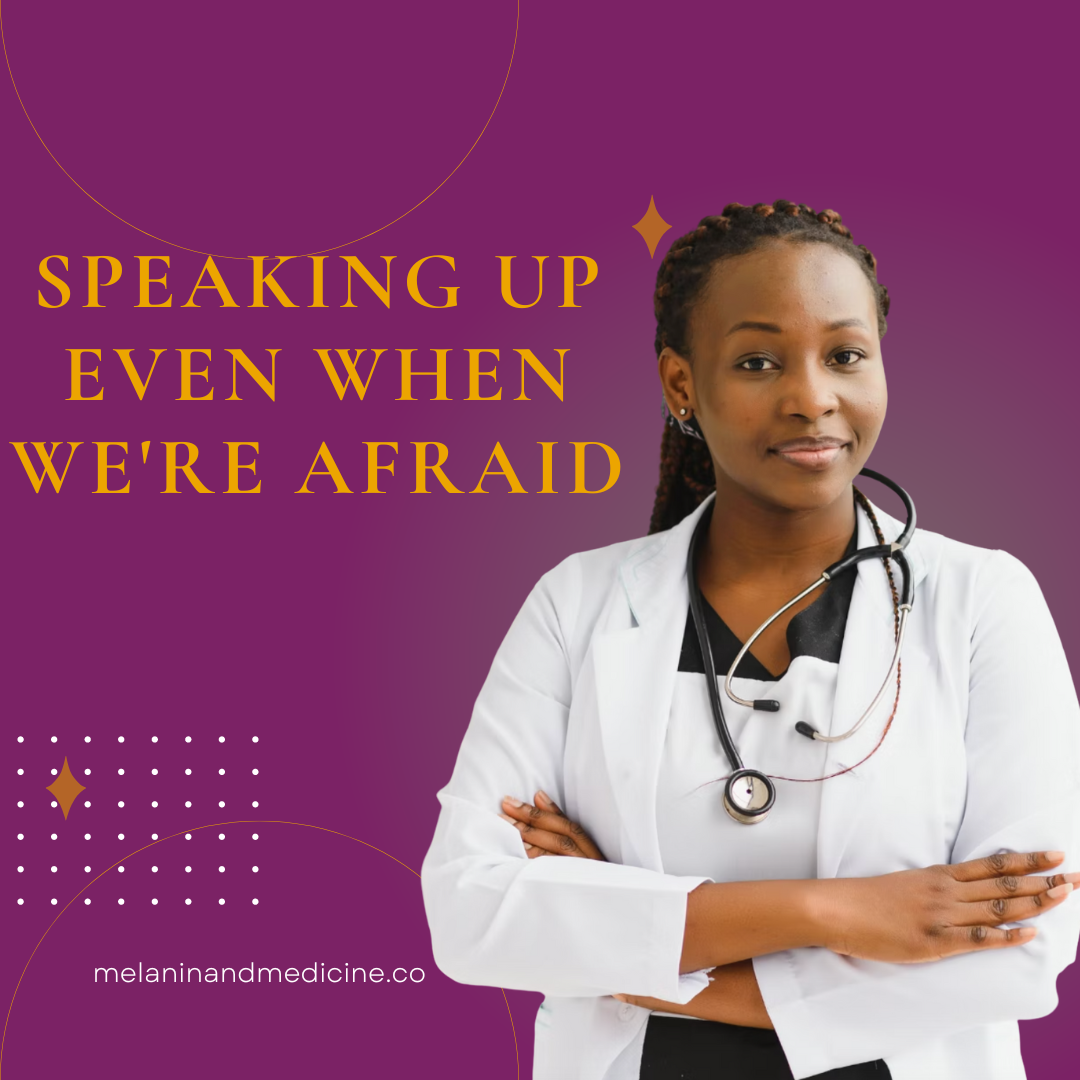When we speak we are afraid our words will not be heard or welcomed. But, when we are silent, we are still afraid…. and that visibility which makes us most vulnerable is that which also is the source of our greatest strength.”
– Audre Lorde
Today I want to talk about speaking up when we are afraid. That quote sits in my office to remind me that there is a certain amount of power with our voices, particularly when we are sitting in the anger, the grief, the joy that we experienced. So many times as BIPOC women, we’re told that to be safe. We have to emotionally suppress ourselves. That doesn’t allow for the fullness of our words to be as powerful as they could be or as impactful as they could be. So one of the things that I wanted to do today, was just to reflect on a few experiences that I always know are no coincidence because that’s just not how God works.
So first and foremost, I received a message about Dr. Carrie Rosario, who now you may or may not know, is a doctor who made news at a hearing with a commissioner, an official in North Carolina. She was speaking on behalf of the constituents of the area. During the hearing, the official – a White man- was making his response to her, a black woman. He called her, Ms. Rosario, with a tone of dismissing her. Dr. Rosario decided to answer and remind him that her title is doctor. Even after multiple exchanges, he actually did not refer to her as a doctor instead started to refer to her by her first name.
Then, he proceeded to let her know that even if she wanted to be referred to by her title, that it did not matter. I want you to sit in that because that is something we are told both explicitly and implicitly. I want you to understand that your emotions, your responses, your voice, everything that you say matters. So when you don’t say anything and remain silent about the thoughts that you know need to come out,
because they’re true and they’re valid, that matters too.
So, I want you to think about what are the ways that you can really move through speaking, even when it scares you.
Identify what is it that you actually are scared of
What’s the consequence that we’re actually scared of and potentially how likely is it for that to happen? How likely is it that speaking up is going to be risky for you? Is that going to be something that you’ll regret? We need to weigh the risk of what could happen against the actual stress, the trauma, the emotional weight that I might feel if I do not speak. So I want you to weigh that.
Think about preparation and how can you say the things that need to be said
One thing that has been extremely important has been being able to make sure that I use prep dialogue for crucial conversations. Some of the things that you want to think about is not only what it is you want, but what it is that that other side wants, what is it that is their problem and not just your problem. You can basically mirror the questions and the things you want to say with the information you are trying to gather information on from their side. It is important to understand that you’re going to have a conversation, not just a speech, but also find a place where you’re listening. There may be an opportunity, if the party is willing (not the case for Dr. Rosario) to co-create a solution.
Think strategically about who are your partners in this issue
For whatever you’re bringing up, are there other people who are like-minded are also in agreement and are those people that either you want to engage, in terms of preparing and getting their information to help to strengthen the case. For this conversation that you’re going to have, or are they people that you want to actually bring into the conversation in order to strengthen the ability for you to make the claim that you want to make? Another way of doing this strategically is sharing it with somebody who holds even more privilege and power than you do. You can see if they are able to be the ally that this crucial conversation needs and speak on your behalf to actually move the conversation forward in a meaningful way.
I hope that this is helpful for thinking about how you can speak without being scared of what could happen and be motivated by what will happen we speak. We as Black women have to embrace that and understanding that we can use each other and leverage each other for support as we make these courageous steps.
We know that the environments that we speak in aren’t safe, but we aren’t safe when we don’t speak either.

Speaking Up Even When We’re Afraid
July 22, 2022
subscribe to our podcast episodes
apple podcasts
spotify
buzzsprout
stitcher
iheart radio
Dr. Omolara Thomas Uwemedimo is a healthcare social entrepreneurship & funding consultant, specializing BIPOC, women-led healthcare practices partnering with community organizations to create health justice for historically excluded & under-resourced communities.
As a pediatrician, researcher, and researcher she has secured $2 million in grant funding and has led inter-professional teams to build and scale healthcare delivery and research programs to achieve health equity for marginalized youth and families.